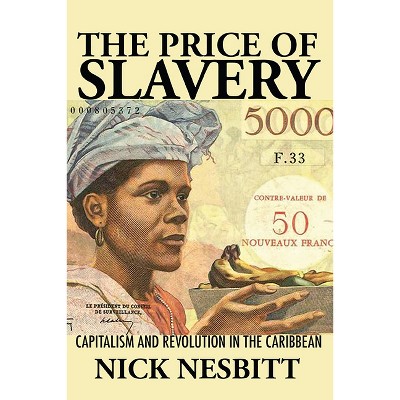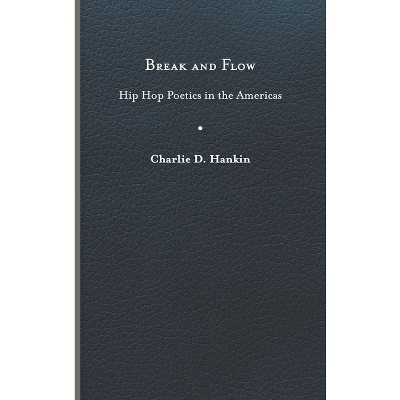Universal Emancipation - (New World Studies) by Nick Nesbitt (Paperback)

About this item
Highlights
- Unlike the American and French Revolutions, the Haitian Revolution was the first in a modern state to implement human rights universally and unconditionally.
- About the Author: Nick Nesbitt is Senior Lecturer in French at the Center for Modern Thought at the University of Aberdeen, Scotland.
- 288 Pages
- History, Caribbean & West Indies
- Series Name: New World Studies
Description
About the Book
Universal Emancipation will be of interest not only to scholars and students of the Haitian Revolution and postcolonial francophone studies but to readers interested in critical theory and its relation to history and political science.Book Synopsis
Unlike the American and French Revolutions, the Haitian Revolution was the first in a modern state to implement human rights universally and unconditionally. Going well beyond the selective emancipation of white adult male property owners, the Haitian Revolution is of vital importance, Nick Nesbitt argues, in thinking today about the urgent problems of social justice, human rights, imperialism, torture, and, above all, human freedom.
Combining archival research, political philosophy, and intellectual history, Nesbitt explores this fundamental event of modern history--the invention of universal emancipation--both in the context of the Age of Enlightenment (Spinoza, Rousseau, Kant, Hegel) and in relation to certain key figures (Rancière, Laclau, Habermas) and trends (such as the turn to ethics, human rights, and universalism) in contemporary political philosophy. In doing so, he elucidates the theoretical implications of Haiti's revolution both for the eighteenth century and for the twenty-first century. Universal Emancipation will be of interest not only to scholars and students of the Haitian Revolution and postcolonial francophone studies but also to readers interested in critical theory and its relation to history and political science.
Review Quotes
Universal Emancipation elevates the Haitian Revolution to its proper place in the pantheon of modern revolutions, beside or even above the French and American Revolutions, as a world historical event. Nesbitt argues that by challenging the assumptions of racial hierarchy, the Haitian Revolution extends and completes the primary lines of the European philosophical tradition, making concrete its abstract notions of freedom, equality, and universality.--Michael Hardt, coauthor of Empire and Multitude: War and Democracy in the Age of Empire"In Universal Emancipation, Nesbitt offers a fascinating and nimble exploration of the radical political and philosophical implications of the Haitian Revolution.
--Laurent Dubois, Duke University, author of Avengers of the New World: The Story of the Haitian RevolutionThe title of Nesbitt's book on the impact of the Enlightenment on the Haitian Revolution is misleading. One expects a detailed retelling of the events leading up to the declaration of that nation's independence. But the author's purpose is not to retell the major events of this struggle: he treats Toussaint L'Ouverture and Napoleon here in only the most cursory manner. Instead, Nesbitt (French, Univ. of Aberdeen) has written a complex, fascinating analysis of how the Haitian Revolution reflected the most radical ideas of European Enlightenment, which, when imposed in the Caribbean, forever transformed the colonial context. Nesbitt suggests that when the more radical notions of Enlightenment authors (from Spinoza to Robespierre) were absorbed in this most unlikely of settings, the result was not only a total rejection of elite power structures in favor of universal egalitarianism, but a precocious land reform program that eschewed the plantation structure (despite Toussaint's orders that everyone work for the state). Notwithstanding today's perception of Haiti as impoverished and violent, Nesbitt considers its history an intellectual and philosophical triumph. Although polemical, this highly original work transcends the usual interpretations of the Haitian Revolution and gives new significance to the meaning of this ultra-important struggle. Summing Up: Highly recommended. Upper-division undergraduates and above.
--CHOICEAbout the Author
Nick Nesbitt is Senior Lecturer in French at the Center for Modern Thought at the University of Aberdeen, Scotland. He is the author of Voicing Memory: History and Subjectivity in French Caribbean Literature (Virginia).
Shipping details
Return details
Trending History











